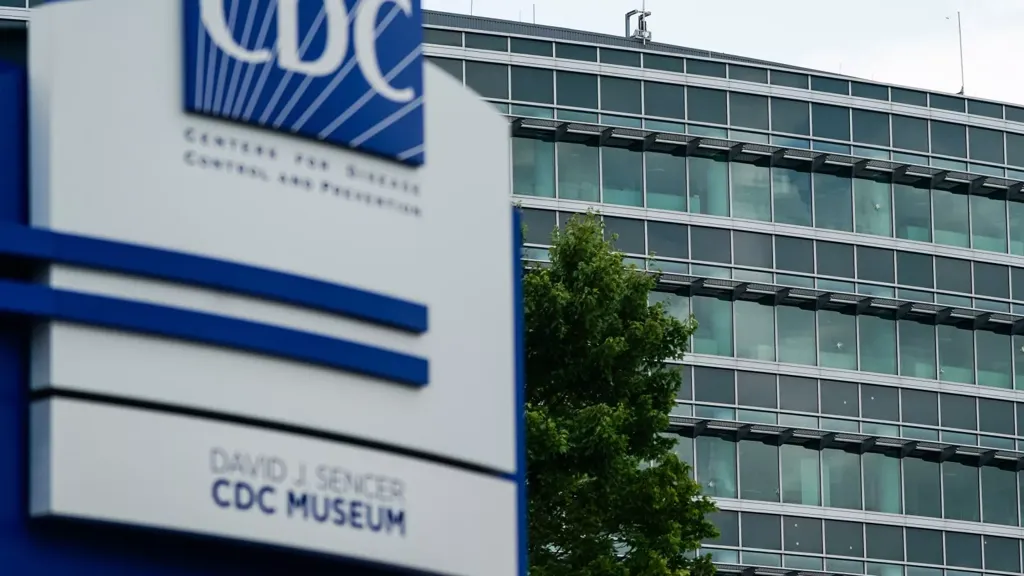A Maryland resident has been diagnosed with a rare parasitic infection known as New World screwworm (NWS), marking the first human case in the United States in years.
The Centers for Disease Control and Prevention (CDC) confirmed the infection on August 4 in a patient who had recently returned from travel to El Salvador. This was earlier reported by other outlets as Guatemala.
New World screwworm larvae feed on living tissue, causing serious damage and potentially death if untreated. While rare in humans, the parasite is a major concern for livestock, with infestations capable of devastating cattle populations. The United States eradicated the parasite domestically in the 1960s, but outbreaks in Central America have raised renewed concerns, according to the American Veterinary Medical Association (AVMA).
In a statement to Newsweek on Monday, U.S. Department of Health and Human Services spokesperson Andrew Nixon said: "CDC, in coordination with the Maryland Department of Health, investigated a confirmed case of travel-associated New World screwworm in a patient who returned from travel to El Salvador.
"The case was confirmed by CDC through telediagnosis (i.e., expert review of submitted larvae images) on August 4, 2025. This is the first human case of travel-associated New World screwworm myiasis (parasitic infestation of fly larvae) from an outbreak-affected country identified in the United States. Currently, the risk to public health in the United States from this introduction is very low.
"Additional information about New World screwworm is available on the CDC website: https://www.cdc.gov/myiasis/about-new-world-screwworm-myiasis/index.html."
Once common throughout the Americas, NWS was eliminated from the U.S., Mexico, and much of Central America between 1966 and 2006 through sterile insect release programs and other coordinated control measures, according to the AVMA.
In late 2016, the Florida Keys experienced the first NWS outbreak in the U.S. since 1966. The infestation primarily affected the endangered Key deer population, with over 130 confirmed cases. Several domestic animals, including dogs and cats, were also impacted.
The parasite remains endemic in parts of the Caribbean and South America. To prevent its northward spread, the U.S. Department of Agriculture's Animal and Plant Health Inspection Service worked with Panama to maintain a biological barrier in the eastern part of the country.
However, that barrier was breached in 2023, with NWS cases now reported in every Central American country and Mexico, increasing the risk of reintroduction to the United States.
The Maryland case is being closely monitored by the state Health Department and the CDC. Health officials emphasize that the risk to the general U.S. population remains low. No animal cases have been reported in the U.S. so far this year, and the patient is receiving treatment.
U.S. authorities are taking precautionary measures to prevent further cases. Livestock imports from affected regions have been suspended, and a sterile fly production facility is being constructed in Texas to combat potential infestations.
The USDA estimates a screwworm outbreak in Texas could cost the economy $1.8 billion, according to Indian news outlet The Economic Times.
The CDC states on its website: "New World screwworm (NWS) infestation occurs when NWS fly larvae (Cochliomyia hominivorax) infest the tissue or flesh of warm-blooded animals. In places where the flies are present, people can also become infested. Screwworm flies are attracted to and lay eggs on and in open wounds.
"NWS does not regularly occur or spread in the United States. The parasite is typically found in South America and the Caribbean. People who travel to these areas, spend time among livestock animals, sleep outdoors, and have an open wound are at greater risk of becoming infested with NWS."
Authorities continue to track the situation, and travelers returning from outbreak-affected regions are advised to seek medical attention if they develop unusual skin lesions. Ongoing surveillance of livestock and wildlife populations will help to ensure the parasite does not gain a foothold in the U.S.
